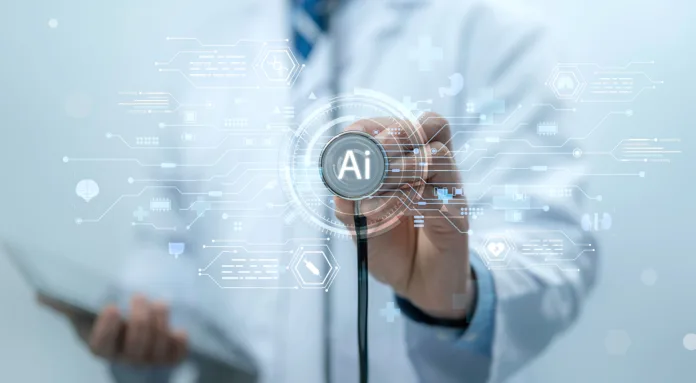
In the 21st century, longevity science has moved from the pages of science fiction into cutting-edge reality. The combined power of biotechnology and artificial intelligence (AI) is rapidly reshaping what it means to age, offering the possibility of not only longer lives but healthier, more vibrant ones. While human lifespan has increased due to improvements in public health and medicine, the focus has now shifted to healthspan — the years one lives without chronic illness or physical decline.
In this article, we dive deep into how longevity science is evolving, the role of biotechnology in slowing the biological aging process, and how AI is becoming an indispensable tool in fighting age-related diseases.
Understanding Longevity Science
Longevity science refers to the multidisciplinary field focused on understanding the mechanisms of aging and finding ways to slow, halt, or even reverse it. This includes studying genetics, cellular biology, neuroscience, and epigenetics to identify the root causes of aging and associated diseases such as Alzheimer’s, cancer, and cardiovascular conditions.
At the core of this scientific revolution are two transformative forces: anti-aging biotechnology and artificial intelligence in healthcare.
How Biotechnology Targets Aging at the Cellular Level
Biotechnology has become a cornerstone in the fight against aging. It encompasses a range of strategies that target the aging process at its roots — the molecular and cellular level. Here’s how it works:
1. Senescence Cell Clearance
As we age, senescent cells — damaged cells that no longer divide — accumulate and release harmful substances that cause inflammation and tissue damage. Senolytic drugs are now being developed to selectively remove these cells, potentially reducing the effects of aging and extending healthspan.
2. Gene Editing and Genetic Repair
The rise of technologies like CRISPR-Cas9 allows researchers to target and correct genetic mutations linked to age-related diseases. Gene editing may soon play a major role in preventing diseases before they even occur, pushing the boundaries of regenerative medicine.
3. Stem Cell Therapies
Stem cell therapy is gaining ground as a way to rejuvenate tissues and organs. By replacing damaged cells with new, healthy ones, scientists aim to slow or reverse organ degeneration that naturally comes with aging.
4. Epigenetic Reprogramming
Researchers are also experimenting with ways to “reset” the biological clock of cells using epigenetic reprogramming. This process can potentially turn old cells into younger ones without changing their identity, providing a path toward healthy aging technology.
AI’s Role in Accelerating Longevity Breakthroughs
While biotechnology tackles the biological side of aging, artificial intelligence in healthcare accelerates discovery, diagnosis, and personalized treatment. AI’s data-processing power enables it to uncover complex patterns within vast biological datasets, leading to faster and more accurate innovations in longevity science.
1. Drug Discovery at Lightning Speed
AI-powered platforms can now predict how molecules will interact with human biology, shortening drug development timelines from years to months. This is particularly important for identifying compounds that may slow cellular aging or treat chronic age-related diseases.
2. Predictive Health Monitoring
Wearable health devices and AI-driven diagnostics are transforming how we detect diseases. By continuously monitoring vital signs and biological markers, these tools enable early intervention, a key principle in age-related disease prevention.
3. Personalized Longevity Plans
AI can analyze an individual’s genetic profile, lifestyle, and medical history to craft tailored longevity plans. These programs may include customized diets, supplements, or therapeutic interventions aimed at maximizing both lifespan and healthspan.
The Convergence of AI and Biotechnology in Longevity Science
What makes this era so revolutionary is the synergy between AI and biotechnology. These two domains are not evolving in silos — they are converging to amplify each other’s capabilities.
For example, AI can identify patterns in how specific genes affect longevity, and biotechnology can then modify those genes. This fusion of disciplines is producing accelerated innovation cycles, with new therapies entering human trials faster than ever before.
Companies and research institutions around the world are investing billions into this convergence, signaling a global shift toward prioritizing proactive aging interventions over reactive treatments.
Challenges and Ethical Considerations
Despite remarkable progress, longevity science is not without hurdles. Ethical concerns around access to anti-aging technologies, genetic modification, and AI-driven healthcare remain hot topics. Will these advancements be available only to the wealthy? How do we ensure privacy and consent in AI-health data usage?
Moreover, society must be prepared for the socioeconomic implications of a significantly older, healthier population — from retirement planning to workforce participation.
The Future: Toward Healthy Centenarians
With the rapid pace of innovation in both AI and biotech, living past 100 with minimal health issues is becoming a realistic goal rather than a dream. Researchers are optimistic that within the next few decades, the average person may enjoy a significantly extended period of robust health.
Already, clinical trials are testing anti-aging drugs, and new AI models are emerging that predict biological age more accurately than ever before. The future of human health is not just about living longer — it’s about living better.
Final Thoughts
The merging of longevity science, biotechnology, and artificial intelligence is reshaping our understanding of aging and health. With AI accelerating breakthroughs and biotech offering cellular-level solutions, we stand at the threshold of a new era — one where old age no longer means decline, but continued vitality and purpose.
As science continues to evolve, what once seemed like science fiction may soon become everyday reality. The journey toward a longer, healthier life is just beginning — and the future has never looked so full of promise.